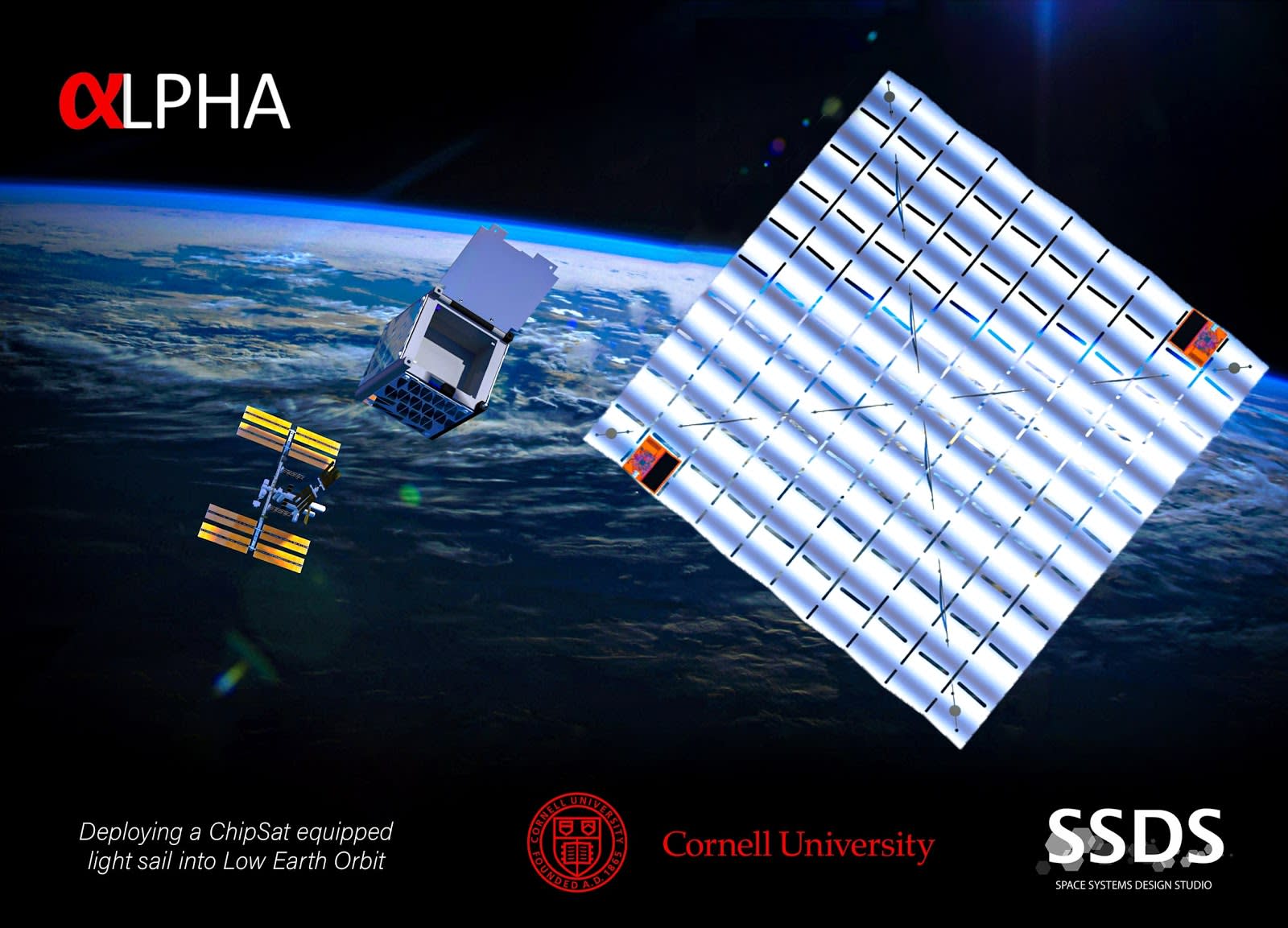Let's build this spacecraft together!
αlpha: Our Story
The Cornell αlpha CubeSat Mission is on the frontier of deep space exploration, holograms as a medium for interstellar communication, and is facilitating innovations that dramatically increase the capabilities of the next generation of small spacecraft.
Our spacecraft's multifaceted and interdisciplinary story brings together NASA scientists, holographic artists, Silicon Valley inventors (a real-life iron man), the Sagan family, and of course, us Cornell students. Part science mission and part art exhibition in space, αlpha carries with it far-reaching implications for interstellar travel, the democratization of outer space, and our search for life in the universe.
αlpha has the potential to inspire those from all backgrounds with the fundamental questions of space exploration: What's out there? How do we get there? And how do we present ourselves to whatever (or whomever) we may find?
With over a dozen undergrads and 2 grad students onboard, the αlpha team has been working tirelessly for the last 4 years to create science fact from science fiction on a daily basis. It’s been a longtime dream of ours to build something that will go to space, and we’ve never been closer.
αlpha has been approved by NASA and is guaranteed to fly. Your help in this final push will make a real difference prior to our launch in 2021
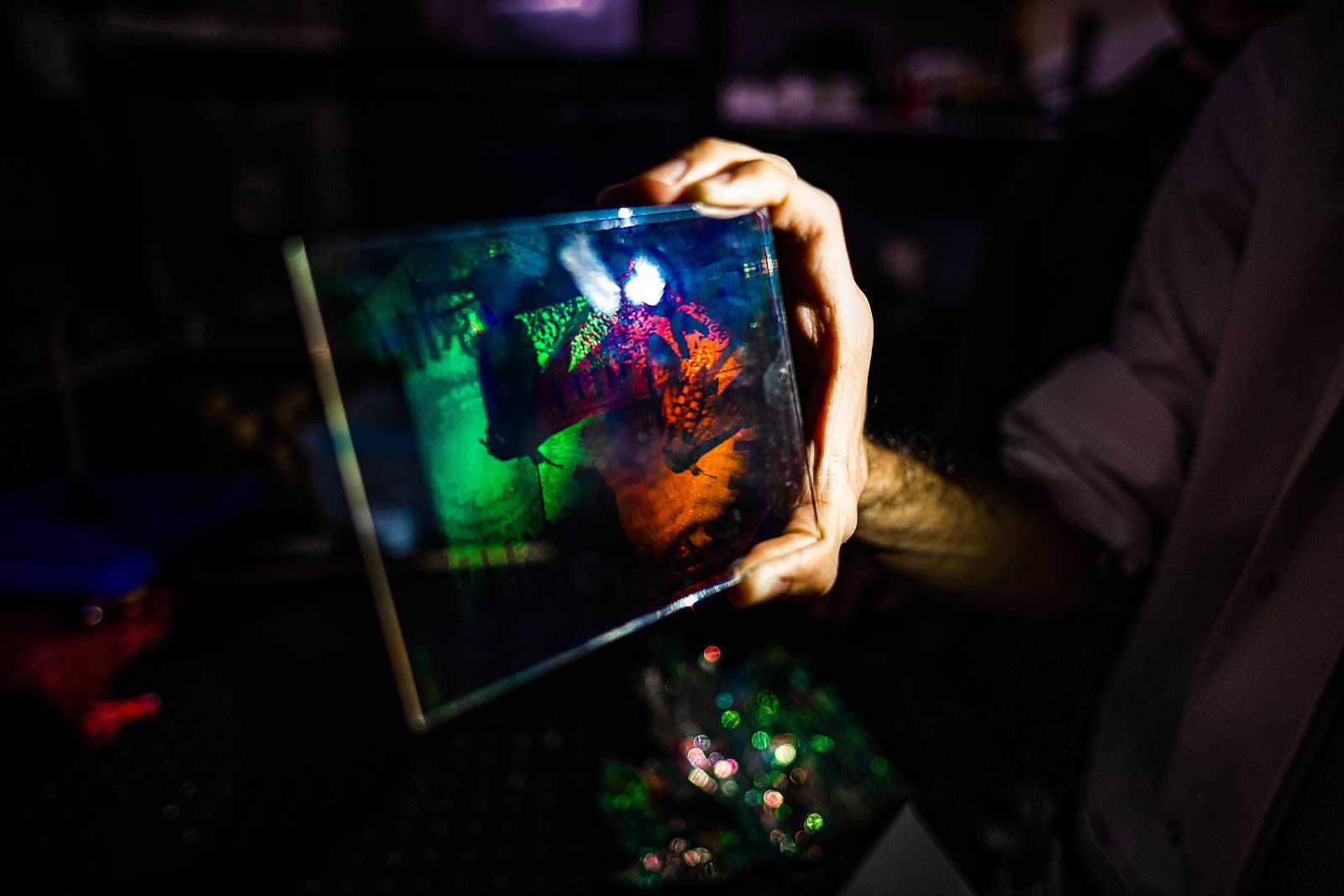
Why αlpha?
Our mission is pioneering multiple techniques that have the potential to fundamentally change deep space exploration. Highlighted innovations include, but are not limited to: a primarily 3D printed spacecraft structure, the use of a RockBlock modem for decentralized communication, the placement of holograms on the spacecraft, and of course, the first release of a free-flying light sail into Low Earth Orbit.
3D printing provides us with the versatility of rapid design and prototyping, while the usage of RockBlock Mk II, a modem that communicates with nearby Iridium satellites, enables us to send commands and receive data via a web interface, bypassing the need for a traditional ground station setup. Holograms are capable of storing vast amounts of information and could play a key role in stabilizing the much larger light sails of the Breakthrough Starshot initiative as they undergo laser propulsion. The innovations above aim to demonstrate key ways in which Alpha actively works to simplify and lower the costs of future scientific missions in Earth’s orbit and deep-space.
As we rapidly progress towards completion next year, we are asking for any donations that will help us achieve our last steps in building and launching our satellite to space. We desperately need funding to ensure that the rest of the spacecraft can be built and sufficiently tested for maximum reliability.
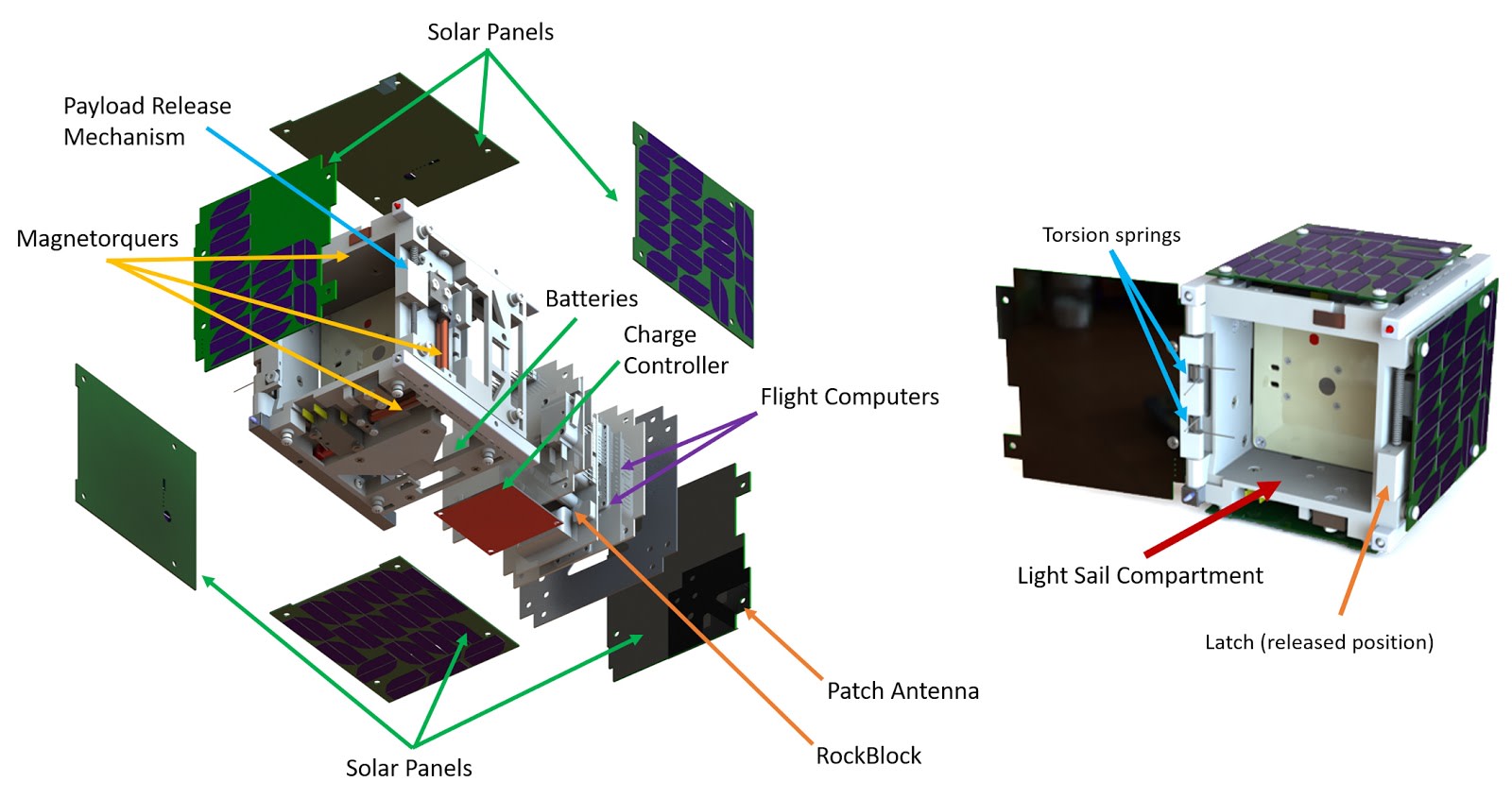
Let’s Get Technical!
Alpha is a 1U CubeSat capable of deploying a free-flying 0.57x0.57m light sail in response to ground commands via the Iridium satellite network. The sail has a ChipSat attached to each of the 4 corners. These will transmit GPS data to Cornell University’s ground station, enabling tracking of the sail to an accuracy of about 10m. The concept of a solar sail has already been successfully utilized in missions such as JAXA’s IKAROS (polyimide) and the Planetary Society’s LightSail 2 (Mylar), but this will be the first time that a retroreflective sail is employed. We are also the first spacecraft mission to incorporate the use of holograms, to be derived from sculptures made by artist C. Bangs, which will be embossed onto the solar panel boards.
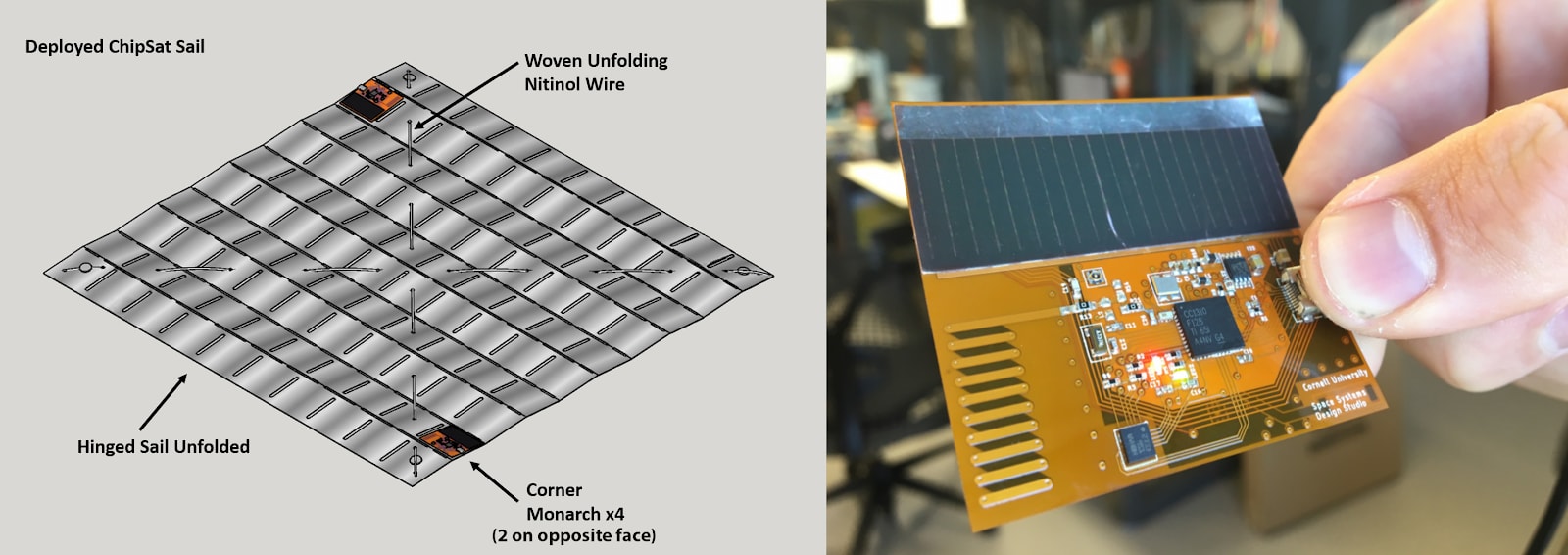
Alpha will be launched on a SpaceX commercial resupply cargo mission to the International Space Station (ISS), from Cape Canaveral, Florida in late 2021. It will be released into orbit from the ISS via the NanoRacks CubeSat Deployer (NRCSD). Apogee and perigee will be approximately 400km, on an inclination of 51.6° from the equator.
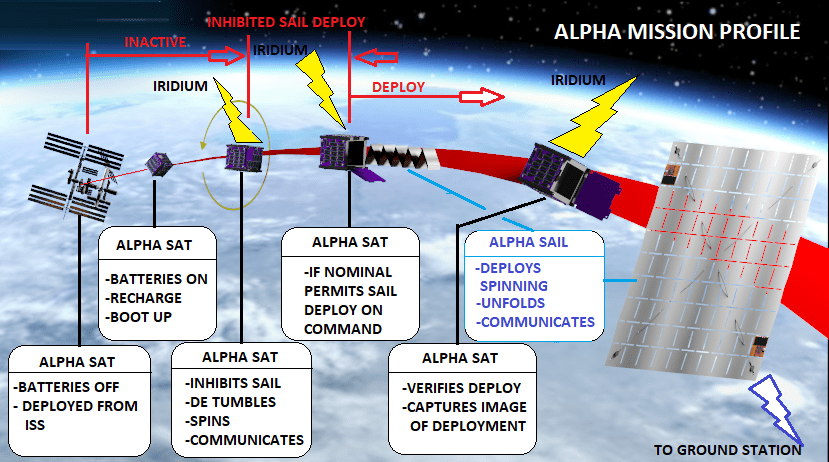
We sincerely appreciate any contributions you can make to bring our project to fruition!
$10
Current Sensor
Your donation will monitor power input into our CubeSat, allowing us to determine how much solar power we're getting and help the spacecraft know when to switch between active and sleep modes.
$20
Magnetorquer Drivers
Your donation will allow our spacecraft to detumble and orient with Earth's magnetic field using a novel attitude control system.
$30
Solar Charger
Your donation will power our spacecraft, connecting our solar panels to our batteries.
$40
Flight Computer
Your donation will control the entire spacecraft, from sensors to communications to attitude control to light sail deployment!
$50
Iridium Radio Antenna
Your donation will allow our spacecraft to receive and transmit messages.
$100
Spacecraft Batteries
Your donation will keep our spacecraft alive, warm and toasty, when unlit by the sun for 45 minutes at a time, half an orbit.
$250
Teflon-Insulated Wiring
Your donation will supply NASA standard space-rated wires to connect all our CubeSat components.
$400
Chipsat Production
Your donation will support the production of Cornell's world renowned spacecraft-on-a-chip flight computers for a novel application aboard our light sail.
$500
Communications Modules
Your donation will allow us to bypass the need for a traditional ground station by going through the Iridium network. We will be able to talk to our spacecraft from anywhere in the world using only a web interface!
$1,000
Vibration Testing
Your donation will allow us to prove that we are flight ready and able to withstand the immense stresses of a rocket launch.
$1,000
Circuit Boards & Solar Panels
Your donation will provide the heart and lifeblood of the spacecraft.
$2,000
CubeSat Structure
Made from space-grade Accura Bluestone, this high-strength 3D printed material enables a customizable structure capable of surviving the drastic temperature ranges of low Earth orbit. Machined and anodized 6061 grade aluminum CubeSat rails will allow for a smooth interface with and ejection from the ISS CubeSat Deployer.





